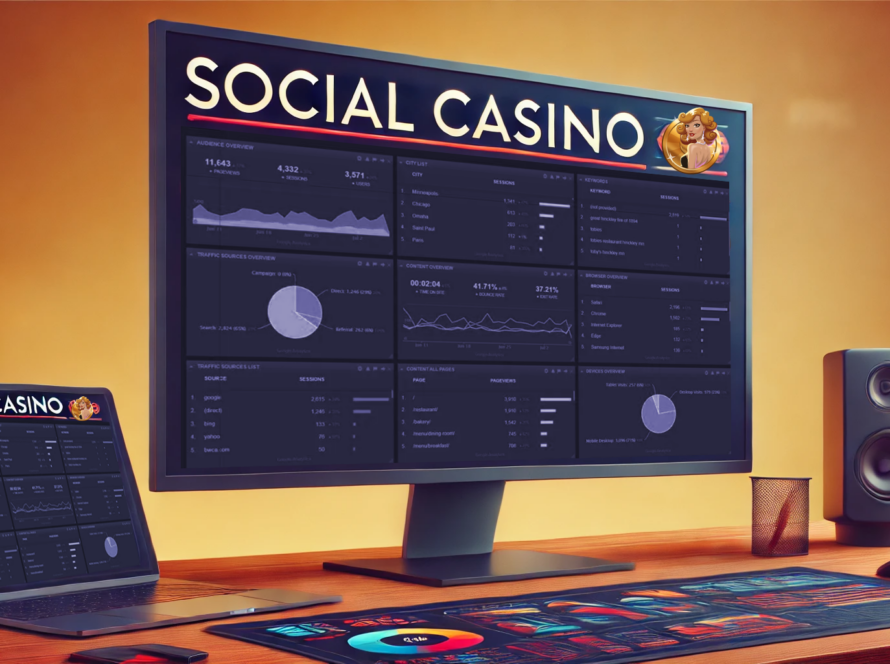Behind the Scenes: Innovating the Dreamlands Virtual World – Game Economy
At Lucky Lady Games (LLG), we’re more than just an independent studio—we’re part of a growing community of creators and tech pioneers who believe in the power of collaboration and innovation. We know that by sharing our journey, challenges, and breakthroughs, we not only strengthen our own team but also contribute to the open-source community that fuels so much of today’s gaming innovation. It’s this belief in helping each other that drives us to push the boundaries of what’s possible in gaming, especially when it comes to state-of-the-art technology.
As a small studio, we’re proud to create with a forward-thinking mindset, integrating the most progressive tech into our games and platforms. From leveraging AI-driven insights to crafting adaptive systems that function seamlessly across PC, mobile, and web, we’re building a future where gaming experiences are dynamic and evolving. Our Dreamlands virtual world is at the forefront of this push for innovation, designed to offer players an unparalleled experience.
With that spirit in mind, we’re excited to introduce our new Quarterly Behind-the-Scenes Series, where we’ll take you on a deep dive into the inner workings of LLG. In each edition, we’ll showcase how we’re experimenting, iterating, and creating tech that is not only cutting-edge but also accessible and impactful for the gaming and development communities.
For our first feature, we’re tackling one of the biggest challenges we’ve faced: developing a cross-platform game economy that balances in-game currencies, progression, and rewards across devices. This economy required extensive dynamic tuning algorithms and experimentation, as player behavior varies significantly across platforms.
Why Cross-Platform Play is the Secret Sauce Behind Social Casino Success
In today’s rapidly evolving gaming landscape, cross-platform play has become a game-changer, especially for social casino games and casual players. The ability to seamlessly switch between devices—whether you’re playing on your PC at home, your phone on the go, or a tablet during your commute—keeps players engaged and makes gaming more accessible than ever.
But why is this so crucial for social casino games? Simple: the more accessible your game is, the more players can interact with it, leading to higher engagement, increased loyalty, and ultimately, better monetization. Here’s why cross-platform gaming is a must-have for modern social casinos:
1. Player Convenience and Retention
Social casino players often play in short bursts, grabbing a few minutes of gameplay wherever and whenever they can. Cross-platform play allows them to seamlessly pick up where they left off, keeping the flow intact, whether they’re on a break at work or relaxing at home. This continuous experience ensures players stay engaged longer, which is key to building loyalty and maintaining active players.
2. Maximizing Audience Reach
By supporting multiple platforms—PC, mobile, and web—developers can reach a wider audience. Not every player has access to the same device at all times, so ensuring that your game is available on as many platforms as possible opens the door to different types of players. This flexibility helps social casinos capture casual gamers who may prefer mobile gaming and traditional casino players who are more comfortable on desktops.
3. Boosting Engagement Across Devices
In a world where users jump between devices regularly, the ability to sync progress and continue gameplay smoothly across platforms makes the gaming experience more immersive and uninterrupted. Players can earn rewards on one device, then redeem or spend them on another, which not only increases in-game activity but also creates more opportunities for monetization through in-app purchases or ad revenue.
4. More Opportunities for Social Interaction
Social casino games thrive on social engagement. Cross-platform play means that friends who play on different devices can still interact, compete, and share achievements. The more social connections a player makes, the more likely they are to stay in the game, fostering a sense of community that’s essential for long-term success.
In the Studio
Balancing a game economy across platforms presented unique challenges. We kicked off the project by tracking player behaviors and patterns on PC, mobile, and web, recognizing that each device brought its own distinct dynamics in how players spent and progressed.
🧪 Design of Experiments
Our hypothesis was simple: a dynamic economy engine could help resolve imbalances by adjusting currency values, rewards, and progression paths based on platform-specific data. To test this, we designed and executed A/B tests targeting:
- Currency sinks (where players spend their in-game currency)
- Reward pacing (timing and size of rewards), dynamic triggered notices Player progression (speed and patterns of progression)
We collected precise data points around player spending, item demand, and the flow of in-game rewards.
Building this dynamic economy required sophisticated system architecture, integrating tech stacks like Snapster, PlayFab, and AWS Incognito for cross-platform synchronization and real-time player tracking. However, working with certain platforms (ahem, Microsoft) imposed restrictions on data querying, forcing us to develop custom solutions for efficient syncing.
Here’s a quick snippet of the code driving the economy engine:

📊 Test Results & Key Insights
This test task led to significant improvements in balancing the economy, with a reduction in currency imbalances across platforms. The insights we gathered included:
- PC players were more aggressive spenders, requiring possible adjustments to slow down their currency inflow.
- Design thoughts: PC players of social casino games may tend to spend more aggressively because they often play for longer sessions and are more likely to seek a deeper, more immersive experience. With the larger screen and the comfort of playing in a more dedicated environment (e.g., sitting at a desk), PC players may be more inclined to purchase larger currency packs or premium features that enhance their gameplay experience. Additionally, PC players might also have a higher disposable income due to age and demographic factors, leading to bigger purchases. Some PC players may be less likely to spend if they see the game as more of a casual or “background” experience compared to other more immersive games they play on the platform.
- Mobile players spent smaller amounts but more frequently, requiring steadier reward pacing.
- Design thoughts: Mobile social casino players often play in short bursts during breaks or commutes, making them more likely to spend on microtransactions (small, frequent purchases like extra spins or currency packs). The convenience of mobile payments through app stores also makes smaller, impulse purchases easier. The “pick-up-and-play” nature of mobile gaming aligns with quick, frequent gameplay sessions, where players may be more receptive to regular, small spending prompts. While many mobile players engage with these types of purchases, some may avoid spending entirely, especially if they are used to the free-to-play model and feel pressured by frequent purchase offers.
- Web players progressed slower and needed extra rewards to maintain engagement.
- Web-based social casino players are often older or more casual gamers, as this platform tends to attract a different demographic (e.g., those playing via Facebook or other browser-based platforms). This group may progress more slowly due to shorter, less frequent sessions and may need extra incentives (like bonus rewards or free spins) to stay engaged. Web players may also be more likely to play passively or while multitasking, which can slow down their progression and increase the need for additional rewards to keep them motivated.
While these findings helped us fine-tune the game economy & pacing, we also encountered challenges. Third party platform’s such as Microsoft restrictions limited the number of queries we could perform, impacting how often we could sync data. We overcame this by integrating our own custom querying system and using AI to optimize real-time decision-making and adjust server processing times, ultimately reducing costs and enhancing performance.
💡 Conclusion & Next Steps
Our work on Dreamlands’ cross-platform game economy has shown us that innovation requires flexibility and experimentation. We’ve improved player progression consistency and currency balance, while also learning the importance of managing costs and scaling efficiently.
This is just the beginning of our journey, and we’re excited to keep sharing what we’re working on. In our next quarterly edition, we’ll dive deeper into AI-powered dynamic systems and how they’re shaping the future of Dreamlands. Keep following for more exclusive behind-the-scenes insights as LLG continues to push the envelope in gaming technology!


